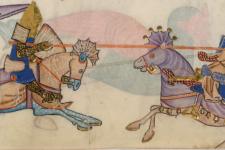Reviving “religious wars” but thinking about them differently

In a new essay published by University of California Press, senior researcher Mona Kanwal Sheikh engages in a dialogue with a recent article published by Mark Juergensmeyer, one of the veterans within the field of religious violence.
The dialogue centers on the concepts of religion and war, and how to think about the explanatory power of religion when it comes to both war and radicalization. The essay grapples with two overall questions:
Under the heading “Religion is relevant for understanding conflict and wars, but it is no explanation - or is it?”, Sheikh argues why the scholarly community that have been responding to simplistic causalities and biased conceptualizations of religion should be careful not to understate the explanatory power of religion. Elaborating on how the explanatory role of religion could be viewed, she writes that Juergensmeyer’s approach to religion and war can particularly explain the dynamics of escalation: that conflicts are hardened by becoming lifted onto the high proscenium of sacred drama”.
Under the heading of “Religion is a real-world ambition, but we don’t have access to human minds—or do we?” Sheikh argues that a fruitful research agenda on religious violence should not be about showing how much religion mattered in relation to other factors. Instead of such a zero-sum approach, where it is either religion or something else that is regarded as the “cause” for either acts of violence or war, an alternative path for scholars who are interested in how religion works in situations of war and conflict is to start from the idea that religion is relevant as a collective perception, a worldview. Worldview analysis requires an integrated thinking about religious imagery and the sociopolitical context it is embedded in. This approach invalidates questions and debates about whether it is “really” religion or other grievances/ambitions that drives violent actors and has been elaborated in “Entering Religious Minds” (2019) - a co-edited volume by Sheikh and Juergensmeyer.
DIIS Experts



